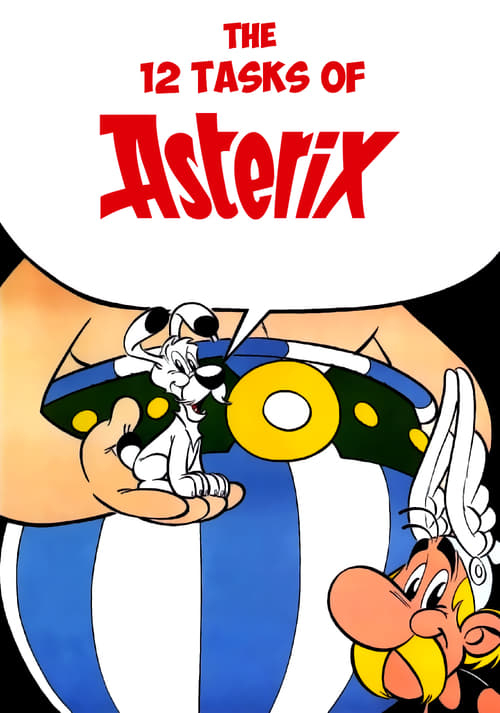
Title: The Twelve Tasks of Asterix
Year: 1976
Director: Albert Uderzo
Writer: René Goscinny
Cast: Roger Carel (Astérix / Caius Pupus / Idefix / Sénateur (voice)), Jacques Morel (Obélix / Employé sur la balançoire (voice)), Jean Martinelli (Jules César / Jupiter (voice)), Henri Virlogeux (Panoramix / Iris / Décurion (voice)), Pierre Tornade (Abraracourcix / Assurancetourix (voice)),
Runtime: 82 min.
Synopsis: Asterix and Obelix depart on an adventure to complete twelve impossible tasks to prove to Caesar that they are as strong as the Gods. You'll roar with laughter as they outwit, outrun, and generally outrage the very people who are trying to prove them "only human".
Rating: 7.32/10